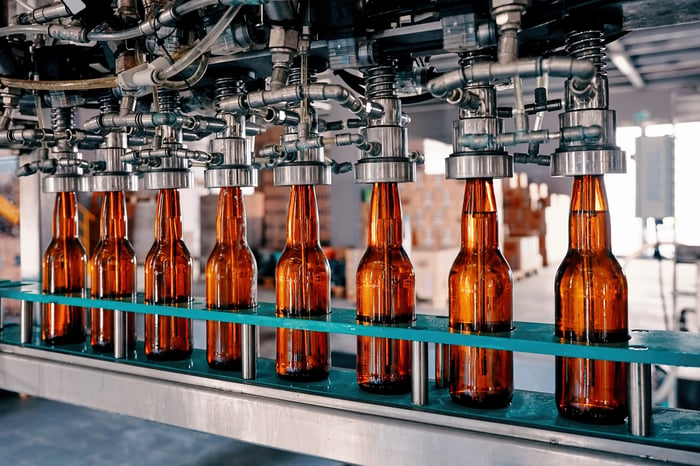Why Constellation Energy Stock Crept Higher on Tuesday
Key Points
-
An enterprise Constellation Energy should soon own secured a loan agreement in Texas.
-
This will provide financing to help complete a power plant project.
Constellation Energy Group (NASDAQ: CEG) saw a decent bump in its stock price on Tuesday following news that a company it will soon own has received funding for a new power plant. Constellation’s shares closed the day more than 2% higher, a rate high enough to beat the S&P 500 index’s 0.3% rise.
Peak progress
Constellation’s asset-to-be is privately held utility Calpine, which announced Tuesday afternoon it had secured a loan agreement with the Texas Energy Fund for the facility. Specifically, Calpine plans to construct a 460-megawatt peaking facility — an electric power plant that runs only at times of peak demand — adjacent to its Freestone Energy Center in the state.
Where to invest $1,000 right now? Our analyst team just revealed what they believe are the 10 best stocks to buy right now, when you join Stock Advisor. See the stocks »

Image source: Getty Images.
The Texas Energy Fund is a state initiative aimed at supporting the development of power resources like Calpine’s planned facility. The company did not provide any financial details on the loan agreement in its press release on the matter.
The peaking facility is already under construction, and Calpine said it should be operational in 2026.
A $16 billion-plus deal
Constellation reached a deal to acquire Calpine back in January. The purchase is still awaiting approval from the relevant regulatory bodies, and is expected to close at some point this quarter. All told, Constellation is paying roughly $16.4 billion for the company in a cash-and-stock deal that includes assuming around $12.7 billion of Calpine’s debt.
Should you invest $1,000 in Constellation Energy right now?
Before you buy stock in Constellation Energy, consider this:
The Motley Fool Stock Advisor analyst team just identified what they believe are the 10 best stocks for investors to buy now… and Constellation Energy wasn’t one of them. The 10 stocks that made the cut could produce monster returns in the coming years.
Consider when Netflix made this list on December 17, 2004… if you invested $1,000 at the time of our recommendation, you’d have $657,412!* Or when Nvidia made this list on April 15, 2005… if you invested $1,000 at the time of our recommendation, you’d have $1,154,376!*
Now, it’s worth noting Stock Advisor’s total average return is 1,075% — a market-crushing outperformance compared to 190% for the S&P 500. Don’t miss out on the latest top 10 list, available when you join Stock Advisor.
*Stock Advisor returns as of October 13, 2025
Eric Volkman has no position in any of the stocks mentioned. The Motley Fool has positions in and recommends Constellation Energy. The Motley Fool has a disclosure policy.



